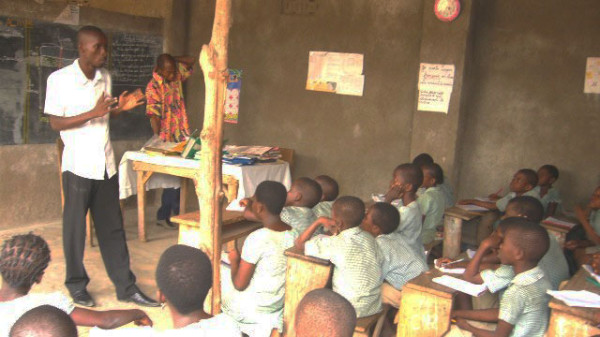“Let’s begin to lead the hearts and minds to the culture of non-violence. If you think that the economic and political system is a disaster and both our future and the one of the continent is not assured anymore, then you will have to say ‘’NO’’ to violence and ‘’YES’’ to peace by strongly engaging in this project in order to set this new mechanism of positive conscience in Africa.”
The foregoing statement leads the preamble of the announcement documents detailing this “African campaign for Education of Non-violence”.
“Our planet Earth needs deep political, economic and social change in terms of education, health and environment. It is deemed necessary to draw back from all kinds of violence. Therefore, there is a prerequisite: ” Education of people for people”.
“Non-violence is nowadays the only true wisdom and method that give direction to life and allow people to choose their future. Of all times, non-violence is expressed through humanism, compassion, reconciliation, forgiveness, love, brotherhood, social justice. Non-violence takes place when a society is based on the development of each and every human being as a central priority and when education and living conditions is growing for all. Non-violence is in you, in your culture, your beliefs and your best qualities!”
This Pan-African Campaign is leaving Lome, Togo (West Africa) on October 2, 2013(the anniversary of Mahatma Gandhi’s birth), declared the “International Day of Non-Violence” by the United Nations.
The Campaign will end at Marracuene’s Park of Studies and Reflections in Mozambique on May 4, 2014 (anniversary of the birth of the Humanist Movement). It will last for 215 days, seven long months of education and sharing through more than 35 African countries.
The “African Campaign for Education of Non-violence” is initiated by the Organisms of the Humanist Movement which Movement is based on the current of thought known as New Humanism, or Universalist Humanism inspired by Mario Rodriguez Cobos, known as Silo.
The “African Campaign” will take shape through the free participation of schools and universities, parties, companies, associations, NGO’s and through people who share the same mindset. They can participate in the campaign in many different ways: whether by organizing or joining activities in countries, either by promoting new initiatives or taking part in the campaign virtually using a website. Everybody without distinction of ethnicities, races, beliefs and religions can participate in the campaign in their country. All those who share love and peace in Africa!
The national and international institutions, religions and other spiritualities, the traditional chiefs, are all taken into account by this project of education of non-violence. This new educational policy of people for people aspires to reach the majority of the African populations to the extent that the media gives coverage and will positively affect all the individuals taking part and thereby influencing their social environments.
It entails that a permanent team of 20 to 40 trainers will conduct the principal journey. To some extent, the responsible activists of the Organisms and enthused volunteers of the various countries will join the main team to continue the journey to other countries – here we see the continuing effects of the epochal World March of previous moments – from Wellington, New Zealand in October 2009 via Asia, Europe, North America to South America and finally Punta de Vacas, Argentina, in January 2010.
As the “Africa Campaign” passes through the continent’s cities there will be organized all kinds of events: training sessions, workshops, conferences, seminars, forums, interviews, marches, festivals, sensitizations…
NOTE: The activities of each country will be organized according to the local initiatives that are emerging. The action plan of the campaign will be based on a triple method – institutional, individual and social.
GOALS AND OBJECTIVES?
– Promote educational tools and non-violence practices;
– Train a new generation of people that value the culture of peace and nonviolence;
– Encourage African leaders and international institutions to insert nonviolence studies into schools and universities’ curricula, as well as the usual subjects of mathematics, geography, languages, etc;
– Sensitize the populations to nonviolence as a method of action in order to create new personal and collective behaviours;
– Create a global awareness that rejects all forms of violence – physical, psychological, racial, ethnic, religious, economic and sexual;
– Send a strong signal to everyone who wants to live in Africa without wars and without violence.
This first “African Campaign for Education of Nonviolence” is synthesized in the ideal and slogan of, “Humanizing the Earth”.










